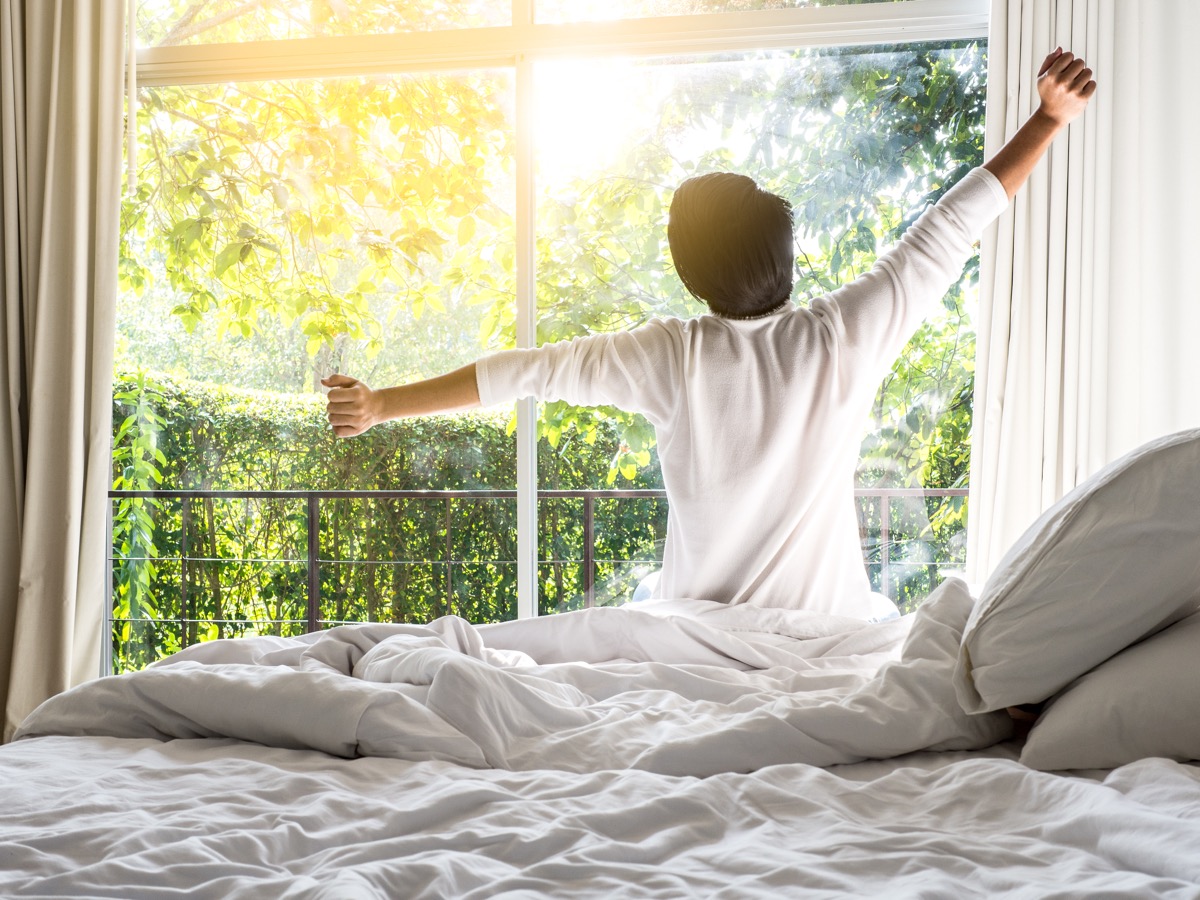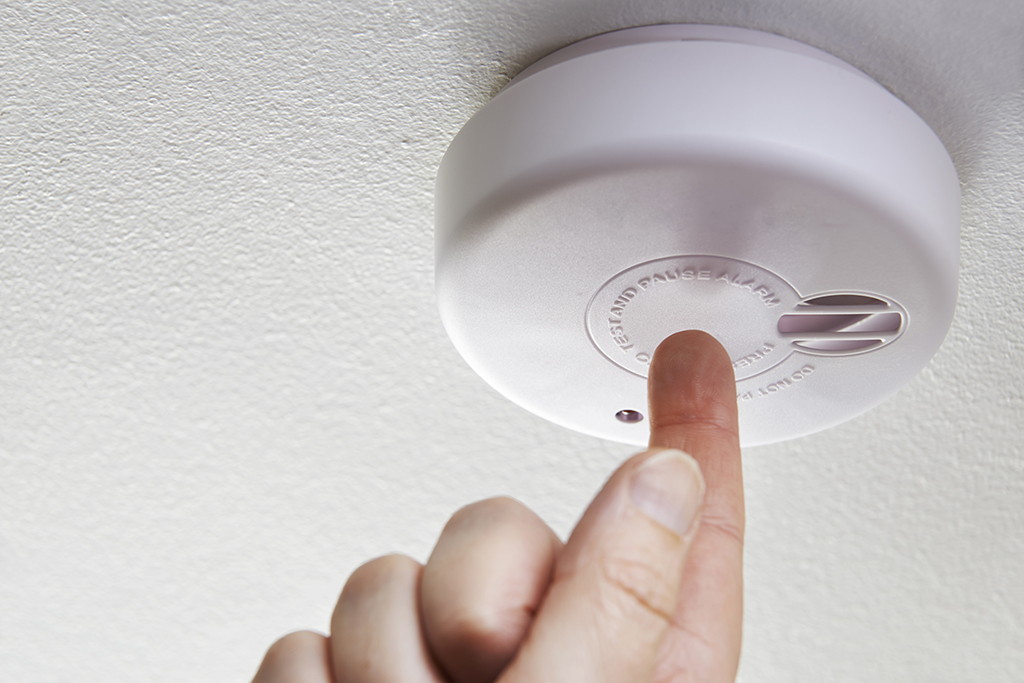According to new research from RMIT University in Australia that was recently published in the Journal of Sleep Disorders and Therapy, the sleepiness and lack of alertness that you feel from the moment you wake up through your morning routine is known as “sleep inertia.” The sensation of tiredness can last for up to four hours, which can make starting your day off on the right foot a difficult task, to say the least. To understand how to combat this, researchers conducted a study of alarm sounds, comparing “melodic sounds” created by music with the “unmelodic” beeping used in most standard alarm clocks. For the study, the researchers defined “melodic” as any tune that’s easy to sing or hum along to, specifically citing “Borderline” by Madonna and “Happy” by Pharrell Williams as examples. And for more advice for your morning, find out why This Is the Worst Time to Drink Your Morning Coffee, Study Says. Using a custom-made app, participants in the study were woken by either a basic alarm sound or a melodic tune. They then had to immediately test their alertness by playing a simple game that had them touch their phones as quickly as possible when certain shapes changed color. The results of the study found that no matter what type of music was playing, “melodic alarm sounds resulted in participants having faster and more accurate responses, compared with a control group who woke up using classic alarm sounds without melody,” the team wrote in a press release from the university.ae0fcc31ae342fd3a1346ebb1f342fcb And for more on how to get better shut-eye, check out If You Can’t Sleep, This OTC Medication Could Be Why, Experts Say. The study authors also pointed out that not all times we’re woken up are because we’ve got a timer set. In emergencies, when a smoke alarm might be what jars you awake, the pitch that’s used can also have an effect. Researchers found that lower-pitched alarms—and even the sound of a human voice—were more effective at waking up children than the traditional high-frequency sounds used in most smoke detectors on the market, giving them better response times in a situation where such levels of alertness could be important. The scientists speculate that may have to do with how sounds are processed by the inner ear and then the brain, but they say further research is needed to fully understand why. And for more helpful tips delivered right to your inbox, sign up for our daily newsletter.
In their statement, the study authors conclude that it should be possible to perfectly tailor each alarm to match specific activities, comparing the alertness required to drive children to school versus getting out of bed on the weekend for a morning yoga class. “Wearable technology and health monitoring apps are improving so rapidly that they might be able to help us choose the exact best alarm for us,” they write. “Vehicles could be fitted with personalised alarms to help drivers stay focused and avoid falling asleep at the wheel.” And for more on what you should avoid when you’re getting into bed, If You Take This Common Medication to Sleep, Stop Now, New Study Says.



